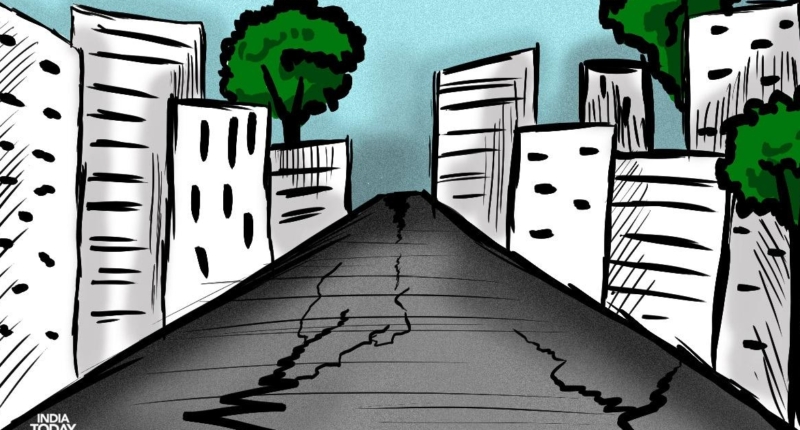Strong tremors were felt in parts of northern India, including Delhi-NCR, as an earthquake of magnitude 6.6 struck the Hindu Kush region in Afghanistan, killing 11 people. However, not everyone felt the tremors, and several factors, including environment, sensitivity, location, and random-chance variations, can determine whether one will feel an earthquake. For example, being at rest and in a quiet room or space improves the chances of feeling the tremors. Similarly, people living in high-rises, near a riverbed, or in a place near the coast are more likely to feel the earthquake. On the other hand, random-chance variations can also drive the binary division between felt and not felt. The reactions of individuals vary, with some not feeling anything until they received messages or heard buzzing groups, while others reacted strongly and posted videos on social media.
Why Some People Didn’t Feel the Earthquake in Delhi, Afghanistan
Several parts of northern India, including Delhi-NCR, felt strong tremors on Tuesday night as a magnitude 6.6 earthquake hit the Hindu Kush region in Afghanistan, killing 11 people. However, while some people were panicking and running down the building, others didn’t feel the tremors at all. There is a scientific reason behind this phenomenon.
Why Some People Don’t Feel Earthquakes
According to a report on Advancing Earth and Space Science, one reason why some people don’t feel earthquakes is that they’re not situated well enough during the shaking. They’re within the perceptible radius of the quake but are not paying enough attention.
The report noted that “below a certain threshold of jarring conspicuousness, earthquakes may rattle unnoticed by people in motion or in loud environments. Indeed, that’s one of the specific qualifications that formally discriminates among lower levels of shaking intensity: ‘felt by few’, ‘felt by many’, ‘felt by nearly everyone’, ‘felt by all’.”
Examples of People Who Didn’t Feel the Earthquake
Several residents of Delhi-NCR, including Ananya Bhattacharya, didn’t feel the earthquake despite its strong tremors. Ananya tweeted, “Another #earthquake in Delhi NCR apparently (didn’t feel anything, but hearing noises from neighbours trying to walk out of the building ??”. Similarly, Tiasa Bhowal, who was at a party in Delhi’s Mehrauli, didn’t feel anything until she received frantic calls from her friend who lives in a high-rise in Sonepat, Haryana, and her parents who had seen the news.
High-Rises vs. Bungalows
Chances are that people living in high-rises may feel the earthquake more than those living in bungalows. This is because higher motions on the upper floors of swaying buildings increase the shaking intensity and improve the chances of feeling a quake at a given site.
In conclusion, it’s common for some people not to feel an earthquake even when others do. Factors like one’s attention, motion, and surrounding environment may play a crucial role in determining whether or not one feels the tremors.
Factors That Determine Whether You Will Feel an Earthquake
Whether you feel an earthquake or not depends on various factors, as per a report on Advancing Earth and Space Science. These include:
Environment and Sensitivity
Being in a quiet room or space improves your chances of feeling the tremors. Similarly, being inside rather than outside, where there are plentiful objects to generate rattling noise, will increase the likelihood of noticing a small earthquake. Human sensitivity to tremors also determines whether they will feel earthquake tremors.
Location
People living in high-rises are more likely to feel the earthquake more than those living in bungalows. This is because higher motions on the upper floors of swaying buildings increase the shaking intensity and improve the chances of feeling a quake at a given site. Additionally, living near a riverbed or in a place near the coast also increases the chances of feeling a quake.
Random-Chance Variations
At low levels of shaking, there are just random-chance variations in awareness that can drive the binary division between felt and not felt.
Examples of People Who Didn’t Feel the Earthquake
Several people, like Pallavi and Yudhajit Shankar Das, didn’t feel the earthquake despite its strong tremors. They realised only later because of WhatsApp messages and buzzing groups. In contrast, some people reacted strongly and posted videos of the earthquake on social media.
In conclusion, the chances of feeling an earthquake depend on various factors like environment, sensitivity, location, and random-chance variations.
Don’t miss interesting posts on Famousbio

